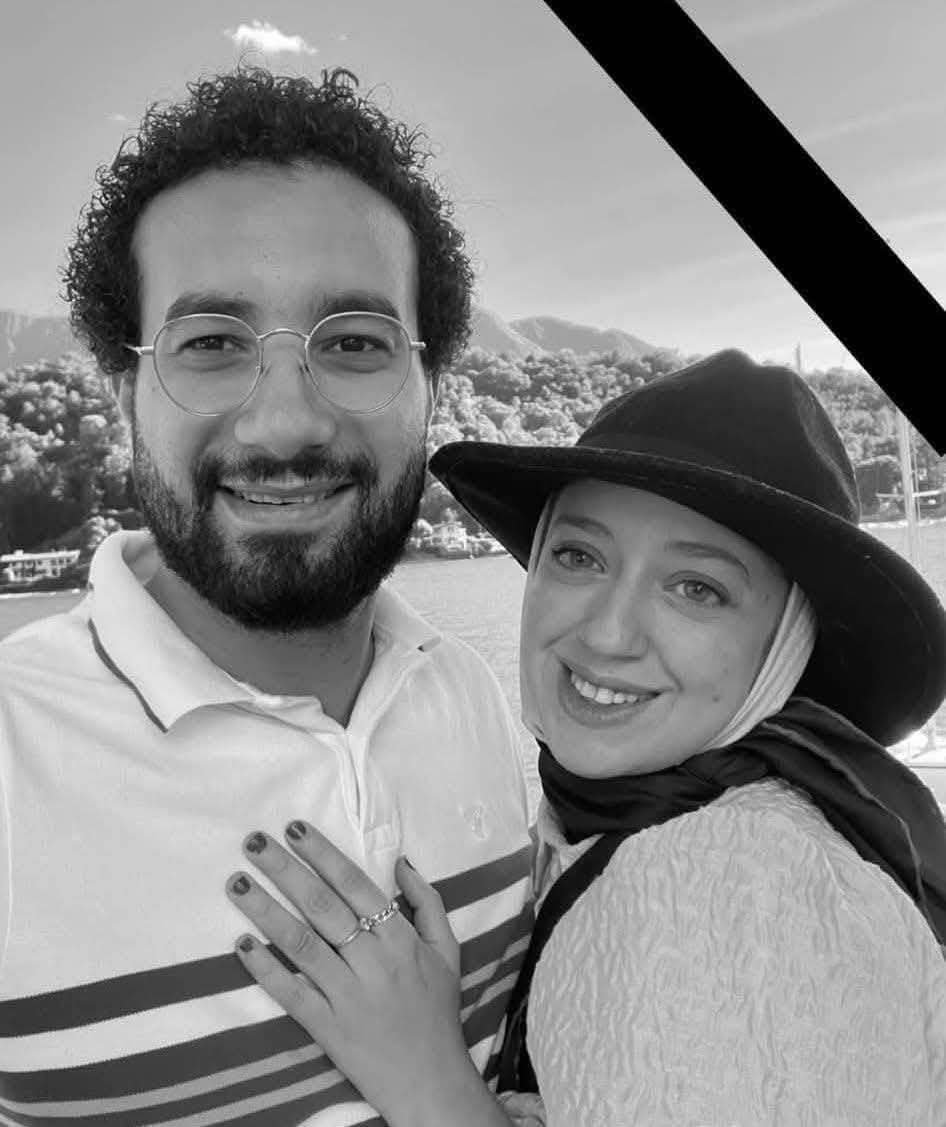Trigger Warning: This article discusses domestic violence, abuse, and femicide, which may be distressing for some readers. If you or someone you know is in danger, please seek support from trusted organizations or local resources.
For the past few days, the internet has been obsessed with Aya Adel’s death in Jordan—debating whether she was pushed or jumped from her seventh-floor apartment. But here’s the truth: it doesn’t matter.
Whether she was thrown by her husband or she jumped to escape his violence, Aya Adel was murdered.
Key Details of the Case
Aya Adel was a 28-year-old Egyptian artist known for her talent in fine arts. She had built a career selling her artwork internationally, participated in multiple exhibitions, and had a promising future ahead.
However, her personal life was far from ideal. She was married to Karim Khaled Hassan, a Jordan-based Egyptian with a background in sustainability and technology projects. Behind closed doors, their marriage was marred by years of physical and emotional abuse.
Aya had previously separated from Karim multiple times due to his violence, even seeking refuge with her family in Egypt. She had already bought a home in Alexandria and was preparing to leave him permanently. But on February 14, 2025, just days after returning to Jordan to collect her belongings, Aya fell from the seventh floor of their apartment in Amman.

The Forensic Evidence: Proof of Abuse Before Her Fall
The official forensic report revealed clear signs of physical abuse before her death. Among the findings:
- A deep laceration on her forehead
- A skull fracture
- Extensive bruising on her body
- Signs of being beaten with a blunt object, likely a metal rod
These injuries contradict the idea of a voluntary suicide. Aya was already battered before she fell. The bruises and fractures suggest she was assaulted before her fatal fall, making the case overwhelmingly one of domestic violence resulting in death.

Conflicting Narratives: What Authorities Say vs. What Her Family Knows
Aya’s family has been vocal in accusing her husband of murder. They claim Karim had a history of abuse, infidelity, and controlling behavior. He allegedly beat Aya frequently, and neighbors had even reported hearing her screams before.
In contrast, Jordanian authorities initially ruled her death as suicide, citing surveillance footage that allegedly showed Aya falling without any direct intervention from her husband. However, new evidence, including witness testimonies and forensic reports, has challenged this claim. Her family and lawyer argue that even if she jumped, it was not voluntary—it was an escape from abuse.
The Illusion of Choice: When “Suicide” Isn’t a Choice
People act like suicide is a decision made in a vacuum. But in reality, victims of domestic abuse often feel like they have no way out. When someone jumps from a burning building, we don’t call it “suicide”—we acknowledge they were running from something worse inside. The same logic applies here. If Aya did jump, it was because the abuse inside that apartment felt worse than the fall.
And let’s not forget the forensic evidence: severe bruises, a skull fracture, lacerations, and signs of beating with a blunt object before her fall. This is not just a case of “marital disputes gone wrong.” This is systematic abuse that ended in death. Yet, the conversation online has reduced her suffering to a clickbait-style debate, completely disregarding that either way, her husband is responsible.
The Internet’s Role in Trivializing Aya’s Death
We didn’t write about Aya’s case when it first happened because of the overwhelming misinformation and sensationalism surrounding it.
A viral video that supposedly captured Aya’s fall turned out to be completely unrelated—it was a 2024 incident from Yemen, yet people shared it without question. Then, there were conflicting reports: some saying the husband was arrested for abuse, others claiming Jordanian authorities labeled it suicide based on CCTV footage. This chaos allowed the most dangerous voices to dominate the conversation—those who dismissed her abuse, defended her husband, or worse, used her death to push misogynistic narratives.
A Wider Social Issue: Domestic Abuse and the Failure of Protection Systems
Aya Adel’s case is not an isolated tragedy. It reflects the larger issue of how domestic violence is ignored, dismissed, or justified. Too often, victims are blamed, their suffering is questioned, and legal systems fail to intervene until it’s too late.
- Women in abusive relationships are frequently told to endure for the sake of their children. Aya herself tried to leave multiple times but returned, hoping to give her kids a stable home.
- Victims are often forced into silence. Aya’s family reported that she had sent messages describing the abuse, but she feared speaking up publicly because of the consequences.
- Legal protections are often inadequate. While her husband was arrested for assault before her death, he was not charged with any serious crime until public pressure forced authorities to take action.
- International legal loopholes – Many abused women living abroad fear losing their residency or visa status if they leave their spouse, leaving them trapped in violent homes.
Aya’s case echoes other tragic incidents, such as the killing of Nayera Ashraf in Egypt, another victim of gender-based violence who was brutally murdered by a man who felt entitled to control her life. These cases prove that women are not safe even when they try to leave.
The Reality of Domestic Violence Abroad
Aya’s story is painfully familiar. Women in abusive marriages, especially those living abroad, are often isolated from their families, lack support systems, and feel trapped due to financial dependency, immigration status, or fear of retaliation. Aya herself had reportedly separated from her husband multiple times but returned for her children. She was trying to leave for good—she had even bought a home in Egypt and was preparing for her fresh start.
For any woman in a similar situation, know this: there are ways out. If you are experiencing abuse in a foreign country, here are steps to protect yourself:
- Reach Out to Local Women’s Organizations – Many countries have hotlines and shelters specifically for domestic abuse victims. Learn about them before you need them.
- Document Everything – Save messages, take photos of injuries, and keep a record of any abuse. If you ever need legal action, evidence is crucial.
- Know Your Embassy’s Resources – Your country’s embassy can sometimes provide legal assistance, temporary shelter, or even help with repatriation.
- Have a Safe Exit Plan – If you’re planning to leave, do it strategically. Gather important documents, secure money, and make sure you have a safe place to go.
- Tell Someone You Trust – Even if you feel alone, someone out there will want to help. Tell a friend, a family member, or a trusted colleague about what’s happening.
Justice for Aya
Aya’s case is still under investigation, but the fact remains: her husband abused her. He was charged with assault before her death. Her family and neighbors confirmed that she lived in constant fear. The bruises on her body tell their own story.
We owe Aya more than online debates about whether she was “pushed” or “jumped.” We owe her justice. We owe her a conversation that acknowledges domestic abuse is deadly, that we stop trivializing the signs until it’s too late.
Aya Adel should still be alive today. And the fact that she isn’t? That’s murder.








What do you think?
It is nice to know your opinion. Leave a comment.